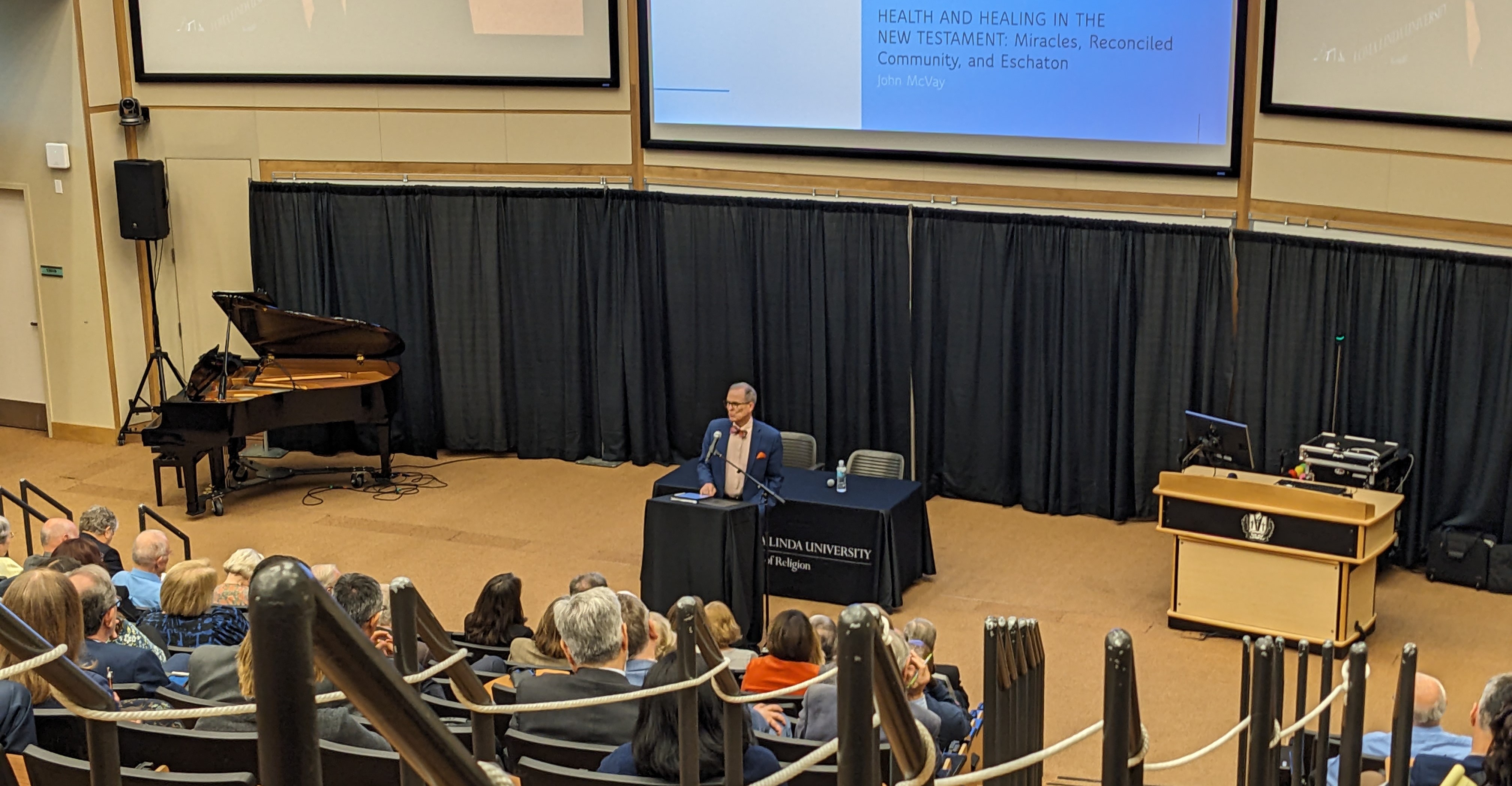
On April 13, 2024, the Dalton Baldwin Memorial lecture featured keynote speaker, John McVay, PhD, president of Walla Walla University, delivering a thoughtful presentation on "Health and Healing in the New Testament: Miracles, Reconciled Community, and Eschaton." The afternoon began with an introduction by President Richard Hart, followed by James Walters, Director of the Humanities Program, providing an overview of the lectures and Provost Ron Carter introducing the speaker. McVay then intentionally guided the audience through various New Testament texts and narratives, emphasizing the ever-present need to understand and emulate Christ's ministry of health and healing in modern healthcare.
Among some of the topics he focused on, McVay highlighted the abundance of miraculous healing stories in the New Testament, such as blindness or demonic possession, facilitated through touch, words, or saliva. “The most obvious material on health and healing in the New Testament consists of the large number of stories of miraculous healings,” explained McVay. He elaborated on the theme by discussing the disciples' continuation of Christ's healing ministry in Acts, stressing its centrality to Christ's mission of empowering followers to heal in His absence.
McVay discussed Paul's role as a healer, noting the mention of the gift of healing in three places in Paul's writings. He suggested that this gift of healing signifies certain Christians' ability to regularly mediate physical cures. Drawing from the healing ministry of Christ, McVay underscored parallels between biblical healers and modern practitioners. Referring to Luke, a physician and author of a significant portion of the New Testament, McVay highlighted the compassionate nature of healing, referencing the Good Samaritan narrative as a notable example of caretaking. He also discussed healing through James' invitation for church leaders to pray over the sick and the holistic healing depicted in Revelation 21 and 22.
McVay not only shared a wealth of information and lessons regarding Christ's ministry of healing in the Old Testament but also sought to lead the audience into a thoughtful reflection on how to use the material to shape their role and involvement in ministry and healthcare. He presented four theological frameworks by which to effectively and intentionally study and apply the lessons of the Old Testament. The four aspects of the theological framework he proposed are Peace, Reconciliation, Community, and a Christ-centered approach. Along with the theological framework, he shared six practical strategies for actively and presently engaging in the ministry of healing.
The afternoon was rich in beautifully crafted reflections and meaningful investigation of the Bible. Ultimately, he urged the audience to engage in their own exploration, challenging them to reflect on their role in facilitating Christ's healing. “It is Christ who acts in the present: we aid and abet His work. We point to and celebrate His presence and power. Attribution is worship. We must not plagiarize the work of the risen Christ,” McVay concluded with a poignant question for healthcare providers: What do you bring into a patient's room? His final statement, “It's not so much what you take in with you as who goes in with you," encapsulated the essence of his message.
Following the presentation, Leo Ranzolin, Dean of the School of Religion, joined McVay in a Q&A session, delving deeper into the themes explored in the presentation. The significance of McVay’s message resonates with all who partake in the sacred work of healing, offering timeless and relevant insights for collaboration with Christ.
Article by: Ezrica Bennett
